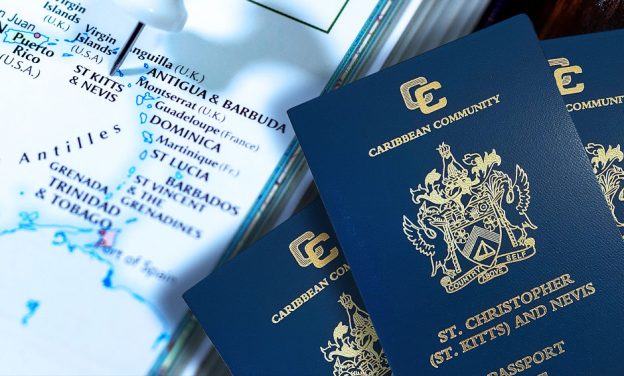The Italian Golden Visa remains one of the most strategic ways for globally mobile investors to secure long-term residency in the European Union. As 2025 brings tighter regulations across Europe, Italy continues offering a stable, structured, and investor-friendly pathway. Unlike programs that rely heavily on real estate purchases, Italy focuses on capital investment, entrepreneurship, and public-benefit initiatives. This approach attracts investors seeking flexibility, lifestyle diversification, and a reliable stepping stone toward EU citizenship.
Apex Capital Partners includes the Italian Golden Visa among its curated residency-by-investment offerings. Because the firm prioritizes long-term planning and global mobility strategies, the Italian program fits naturally within a broader international structure. Throughout this guide, you will find clear explanations, strong transition flow, and insights designed to help sophisticated investors make informed decisions.
Understanding the Italian Golden Visa in 2025
Italy’s residency-by-investment structure, formally called the Investor Visa for Italy (IV4I), has grown increasingly attractive. Instead of tying residency to property purchases, Italian lawmakers created a model centered on capital investment. Consequently, investors participate directly in the country’s financial and innovation ecosystem.
Before anything else, you must obtain a Nulla Osta, the official pre-approval issued by the Investor Visa Committee. Once approved, you apply for a Type-D investor visa at your local consulate. After arrival in Italy, you must file for your residence permit within eight days and finalize your investment within ninety days. This clear and predictable sequence forms the foundation of the program.
The initial residence permit lasts two years. After this period, you renew for an additional three years. Together, the 2+3 structure creates a five-year timeline that leads naturally into long-term planning.
How Residency Progression Works
Because Italy offers a defined path toward deeper status, the program appeals to forward-thinking investors. After five years of legal residence, you may apply for EU permanent residency, which expands your mobility and integration rights. Furthermore, after ten years of residence, you may qualify for Italian citizenship by naturalisation, assuming you meet presence and integration requirements.
Another important component is Italy’s flexible approach to permit renewals. While you must maintain your investment, you do not face strict annual day-count requirements to renew your residency. This flexibility allows you to keep your global lifestyle intact. Nevertheless, investors aiming for permanent residency or citizenship should plan physical presence carefully, since those milestones do require genuine residence.
Who Qualifies for the Italian Golden Visa
Eligibility for the Italian Golden Visa focuses on lawful financial activity, transparent documentation, and compliance with Italian immigration law. Applicants must hold a non-EU, non-EEA, and non-Swiss passport. They must also provide a clean criminal record and credible evidence confirming that the investment funds originate from lawful sources.
Due diligence standards strengthened in 2024 and remain rigorous in 2025. Authorities now request multi-year financial statements, tax filings, detailed explanations of banking flows, and clear corporate documentation when applicable. Because of these requirements, a well-curated file prevents delays and avoids unnecessary questions from the Investor Visa Committee. Apex assists investors by structuring files that satisfy these standards from the beginning.
Investment Options for the Italian Golden Visa
Italy keeps its investment thresholds stable, which offers predictability in a rapidly changing European residency landscape. Each qualifying option serves a different investor profile, allowing you to choose based on risk tolerance, liquidity, and long-term goals.
€250,000 in an Innovative Startup
Investors seeking the lowest entry threshold often consider the innovative startup route. Although this choice requires the smallest commitment, it also carries the highest risk. Italian startups vary widely in structure, financial strength, and governance, which means due diligence becomes essential. A balanced, diversified approach usually produces better outcomes than choosing a single company without research.
€500,000 in an Italian Limited Company
Many investors prefer this pathway. By investing in an established Italian limited company, you gain exposure to a more predictable corporate environment. Mature companies typically provide clearer financial records, long-term operational stability, and less volatility. This balance between risk and opportunity makes the €500,000 corporate route the most commonly selected option.
€1,000,000 Philanthropic Donation
Those who want a clean and straightforward process often choose the philanthropic route. Although this path does not return capital, it supports public-interest projects such as education, scientific research, cultural development, or immigration support initiatives. This route removes concerns about corporate performance or market risk.
€2,000,000 in Government Bonds
Investing in Italian government bonds provides a stable, sovereign-backed structure. Government bonds offer predictable returns and defined exit timelines, making this option appealing to conservative investors. Because the investment remains straightforward and transparent, many wealth-preservation–focused applicants select this route.
Each investment option requires complete documentation, including proof of funds, banking records, and a detailed investment plan. Apex prepares every component so your file remains accurate, compliant, and tailored to program standards.
Benefits of the Italian Golden Visa
Several features make the Italian Golden Visa stand out among European residency programs. Through a combination of mobility, flexibility, and long-term opportunity, Italy offers advantages that appeal to global investors.
Schengen Mobility
Your Italian residence permit grants you the right to live in Italy and move freely across the Schengen Area for short stays. Entrepreneurs, executives, and internationally active families rely on this flexibility to support their global schedules.
Absence of Minimum Stay for Renewals
Italy does not impose strict minimum stay requirements for renewing the investor residence permit. As long as you maintain your qualifying investment, renewal remains accessible. Investors with international commitments value this freedom because it allows them to keep their primary residence elsewhere while maintaining an EU foothold.
Family Inclusion
You may include your spouse and dependent children at no additional investment cost. As a result, entire families can secure EU residency through a single investment. This advantage supports mobility, education access, and long-term planning.
Pathway to Permanent Residency and Citizenship
Because Italy operates consistently and maintains clear rules, you can plan for the long term without guesswork. The route toward permanent residency after five years and possible citizenship after ten years gives investors a defined roadmap.
Attractive Flat Tax Regime
Italy’s flat tax regime has become a major draw. Investors who establish tax residency may choose to pay a €200,000 flat annual tax on foreign-sourced income for up to fifteen years. Additional family members can join for €25,000 each. This regime creates a simplified and predictable tax environment. Since policy discussions hint at future adjustments, early planning becomes even more beneficial.
The Application Process Step by Step
Because Italy’s Investor Visa follows a structured process, preparation determines how efficiently your file moves through each phase. A clear, methodical approach makes every step easier.
Step 1: Strategic Planning
You begin by clarifying your goals. Some investors want eventual EU citizenship, while others only need flexible residency. Your investment route should align with your liquidity, sector interest, and risk appetite. Apex reviews your corporate structures, banking history, and tax background to create a file that supports these goals.
Step 2: Nulla Osta Application
When your file is ready, Apex submits the Nulla Osta to the Investor Visa Committee. This submission includes identity documents, tax records, corporate documentation, bank statements, and your detailed investment plan. The committee generally responds within thirty to ninety days.
Step 3: Consular Visa Issuance
After approval, you visit your consulate to obtain the Type-D investor visa. This visa authorizes your entry into Italy for residency activation.
Step 4: Arrival and Investment Completion
Upon arrival in Italy, you file your residence-permit application within eight days. You must also complete your investment within ninety days. Structuring your investment in advance ensures smooth and timely completion.
Step 5: Renewal and Long-Term Strategy
Your first permit lasts two years. You renew for three additional years as long as you maintain your investment. During these years, you should prepare for permanent residency requirements, language preparation, and presence planning. Proactive planning makes the transition into long-term EU residency much smoother.
How the Italian Golden Visa Fits Into a Global Strategy
The Italian Golden Visa integrates seamlessly into a multi-jurisdictional structure. Investors often combine Italy with other residency and citizenship options offered by Apex. For example, a fast Caribbean citizenship provides immediate global mobility, while the Italian Golden Visa offers long-term EU positioning. This combination strengthens both freedom of movement and strategic planning.
Additionally, Italy provides access to European markets, strong legal protections, respected education systems, and outstanding lifestyle advantages. These features make Italy a valuable base within a larger international plan.
Mistakes Investors Should Avoid
Investors sometimes make preventable errors when approaching the Italian Golden Visa. Recognizing these mistakes helps you avoid delays and protect your investment.
Overemphasizing the Cheapest Route
Although the €250,000 startup investment appears attractive, it carries higher risk. Thorough due diligence and diversified selection reduce exposure.
Delaying Tax Planning
Because the flat tax regime has already changed, and further adjustments remain possible, timing matters. Early coordination creates greater long-term benefits.
Submitting Incomplete Financial Records
Italian authorities request detailed, credible financial documentation. Missing or inconsistent records slow approvals and create unnecessary complications.
Assuming Long-Term Status Requires No Presence
You may renew your investor permit with limited physical presence, but permanent residency and citizenship do require genuine residence. Planning ahead prevents future obstacles.
Why the Italian Golden Visa May Be the Smartest Next Move
The Italian Golden Visa continues to offer one of Europe’s strongest, most predictable residency pathways. Investors value its stable rules, reasonable investment thresholds, Schengen mobility, and real long-term opportunities. Italy’s flat tax regime, combined with its world-class lifestyle, positions the country as a powerful base for globally mobile families.
Apex Capital Partners supports each step of the process—from investment selection to documentation, compliance, and long-term residency planning. When you want an EU foothold that strengthens your international strategy, the Italian Golden Visa stands out as an exceptional choice.






